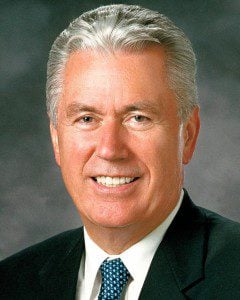Tonight we will hear two presidential candidates talk about United States foreign policy. Though it won’t be phrased quite so baldly, much of their conversation will be about when our nation should send its sons and daughters to kill and be killed – or more likely in our era, when we should send unmanned drones to kill other people’s sons and daughters. All of this will be framed by way of preserving national security and promoting peace. (Indeed, one of the two men on the stage is a Nobel Peace Prize laureate, a fact I doubt he will mention and not without considerable irony given many of his actions the past four years.)
Both men in the debate, and virtually everyone listening, will say that peace is one of their highest ideals. After all, who is against peace? No one, perhaps, but many will at least implicitly qualify their view by asserting that we live in a world of evil where some people will in fact choose violence. Thus, they will say, the most appropriate, necessary, and effective response to that violence, in the service of securing the peace and protecting innocents, is another form of violence—whether police action, self-defense, or even preemptive war.
Mormonism has embraced the power and logic of American militarism at least since the Spanish-American War. By no means do I want to suggest that contemporary Mormons, or the LDS Church, are unconcerned with peace. Indeed, peace is a common element of Mormon discourse. For the most part, however, when Latter-day Saints talk about “peace,” they do so in one of three ways: as personal, inner peace that comes with faith and righteous living; as interpersonal peace and harmony in our families, church, and communities; and as eschatological or millennial peace that will only be achieved when Christ returns to the earth. What is notably missing, with a few exceptions, is any serious consideration of peace as not just a personal value and ideal state of affairs but also as a pragmatic and even political ethic.
A few years before he died, Mormon literary scholar Eugene England published a book of essays called Making Peace. England rightly recognized that the ethic taught and demonstrated by Jesus compels us toward the political; as he observed, “the Prince of Peace had to do with peace between nations.” Declaring oneself a Christian and proclaiming allegiance to Christ’s kingdom, England asserted, means discovering “what the costs of discipleship to such a Prince might be,” even if it takes us into the rather impolite realm of politics.[i]
I agree that disciples of Jesus must think more seriously about “the politics of Jesus,” as Mennonite theologian John Howard Yoder put it. Jesus is not simply a sweet Savior who stands aloof from the political, social, and economic concerns of this world. The Jesus we encounter in the New Testament, and who is further revealed in all Latter-day Saint scripture, demands a total restructuring of society. What Jesus meant by telling Pilate that His kingdom is not of this world was not just that His kingdom is a kinder, gentler version of Caesar’s dominion. As Yoder wrote, “[Jesus] refused to concede that those in power represent an ideal, a logically proper, or even an empirically acceptable definition of what it means to be political. He did not say . . . ‘you can have your politics and I shall do something else more important’; he said, ‘your definition of polis, of the social, of the wholeness of being human socially is perverted.’”[ii]
Religion not only can, but must, take into account the political. This does not mean baptizing our secular political ideologies in religious warrants, essentially equating the kingdom of this world with the kingdom of Christ. When that is the case, religion ceases to be prophetic and becomes culturally captive. The politics of Jesus are always in relationship with the politics of this world. The relationship, however, is never one of outright endorsement, but rather a prophetic witness aimed at reordering human societies so as to more fully approach Zion.
One of the strongest prophetic statements offering an unqualified critique of Latter-day Saints’ acceptance of violence came from church president Spencer W. Kimball in the midst of the nation’s bicentennial celebrations in the summer of 1976. His voice of warning is worth quoting at some length:
“We are, on the whole, an idolatrous people—a condition most repugnant to the Lord.
“We are a warlike people, easily distracted from our assignment of preparing for the coming of the Lord. When enemies rise up, we commit vast resources to the fabrication of gods of stone and steel—ships, planes, missiles, fortifications—and depend on them for protection and deliverance. When threatened, we align ourselves against the enemy instead of aligning ourselves with the kingdom of God; we train a man in the art of war and call him a patriot, thus, in the manner of Satan’s counterfeit of true patriotism, perverting the Savior’s teaching: ‘Love your enemies, bless them that curse you, do good to them that hate you, and pray for them which despitefully use you, and persecute you; That ye may be the children of your Father which is in heaven.’ . . .
“What are we to fear when the Lord is with us? Can we not take the Lord at his word and exercise a particle of faith in him? Our assignment is positive: to forsake the things of the world as goals in themselves; to desist from idolatry and press forward in faith; to carry the gospel to our enemies, that they might no longer be our enemies.”
In listening to more than three decades’ worth of church lessons, I don’t think I’ve ever once heard this prophetic statement quoted—President Kimball’s teachings on heavy petting, plenty of times; his teachings on rejecting the false god of militarism, never.
President Kimball applied his own teachings a few years later, when the First Presidency formally opposed the basing of the MX missile system in Utah and Nevada. Some people saw the MX missile issue as purely pragmatic—even the statement itself has the ring of “not in my backyard.” But this is precisely the point: an ethic of peace is both principled and pragmatic, and always situated in the context of the local, presenting conflict. Nonviolence is a this-worldly strategy that is a creative, empowering response to violence and injustice.
Yet for many nonviolent activists, there is also an otherworldly dimension—a focus on the long narrative of Christ’s redemption, or a belief in a cosmic “arc of justice”—that gives context and meaning to the suffering that often accompanies nonviolence. The lesson of the Book of Mormon’s Anti-Nephi-Lehies (who laid down their lives rather than take up arms against their attackers), the lesson of Helmuth Hubener (the Mormon teenager who was executed for resisting the Nazis), the lesson of Martin Luther King, the lesson of Jesus’s crucifixion, is that the serious follower of a Christian ethic of peace must be willing to pay the ultimate price—to die in the face of violence.
That an ethic of peace sometimes calls for total sacrifice is not a marker of its ineffectiveness. Violence, by definition, results in pain and suffering and death, and by definition, many of the participants in violent conflict will lose their lives. Even when temporarily effective in bringing about immediately desired ends, violence leaves death and destruction in its wake. Anyone who claims that “violence works” is looking through a narrow moral lens that does not acknowledge the humanity of the victims. Both violence and nonviolence operate on hope and faith—we trust that the strategies we employ will bring about our desired ends. Violence, it turns out, is typically no more pragmatic than is nonviolence.
A Mormon theology and ethic of peace recognizes that temporal effectiveness is not the standard by which we judge Christian attitudes and behavior. If following Jesus was completely ineffectual and impractical, it would still be the right thing to do. “The key to the obedience of God’s people,” writes John Howard Yoder, “is not their effectiveness but their patience. . . . The triumph of the right, although it is assured, is sure because of the power of the resurrection and not because of any calculation of causes and effects, nor because of the inherently greater strength of the good guys. The relationship between the obedience of God’s people and the triumph of God’s cause is not a relationship of cause and effect but one of cross and resurrection.”[iii]
The ethic of Jesus is, in the end, not just spiritual but also political. As Eugene England eloquently stated: “We are confronted, in scripture and experience, with a God who is completely without violence precisely because he treats all humans as infinitely precious, as persons, ends in themselves.”[iv] In this light, the nonviolent theology and ethic of Jesus is revealed as normative, and any departure becomes the aberration that requires explanation.
Following Jesus may not sway voters or score points with pundits. But the crucified and resurrected Christ reminds us that winning elections and making friends is not the standard by which we should form our deepest values as individuals and as a society.
[This post is adapted from a longer address entitled, “‘Blessed Are All the Peacemakers’: Toward a Mormon Theology and Ethic of Peace,” delivered as the Eugene England Memorial Lecture, Utah Valley University, March 29, 2012. Video of the entire lecture can be accessed here.]











